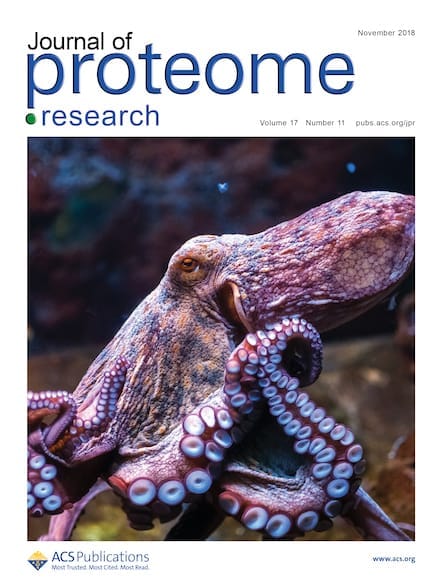An April 10 Journal of Proteome Research webinar, “Hot Topics in Proteomics” highlighted perspectives from three leading scientists in three important and rapidly developing areas of proteomics, including precision medicine, precision proteomics, single-cell proteomics. The webinar is moderated by John Yates, the Editor-in-Chief of Journal of Proteome Research and Professor at the Scripps Research Institute. Each topic […]

An April 10 Journal of Proteome Research webinar, “Hot Topics in Proteomics” highlighted perspectives from three leading scientists in three important and rapidly developing areas of proteomics, including precision medicine, precision proteomics, single-cell proteomics. The webinar is moderated by John Yates, the Editor-in-Chief of Journal of Proteome Research and Professor at the Scripps Research Institute. Each topic is based on a recently published perspective from the Journal of Proteome Research.
Transformative Opportunities for Single-Cell Proteomics

Nikolai Slavov (Assistant Professor, Bioengineering, Northeastern University) studies post-transcriptional regulation during cell differentiation, with a focus on translational regulation by specialized ribosomes. His group also develops and applies single-cell mass-spectrometry methods for investigating post-transcriptional regulation in single cells. He speaks on recent developments in single cell proteomics that hold promise to enable participation in projects such as the human cell atlas.

Lisa Jones (Ph.D., Assistant Professor of Pharmaceutical Sciences, School of Pharmacy, University of Maryland) is an expert in the field of structural proteomics. Her research focuses on the development and application of in vivo hydroxyl radical footprinting methods to study protein conformations and interactions. She speaks about mass spectrometry-based protein footprinting for analysis of protein interactions and dynamics. As the U.S. population ages, protein misfolding diseases associated with aging are on the rise. These methods will help us better understand these diseases.

Jennifer VanEyk (Ph.D., Director, Advanced Clinical Biosystems Institute in the Department of Biomedical Sciences) is an international leader in the area of clinical proteomics and her lab focuses on developing technical pipelines for de novo discovery and large scale quantitative mass spectrometry methods. She speaks on precision proteomics and their role in precision medicine and personalized health. In order to fashion better and more personalized medicine, we must understand what it is that makes us unique as individuals. Precision proteomics will play a vital role in this effort.
